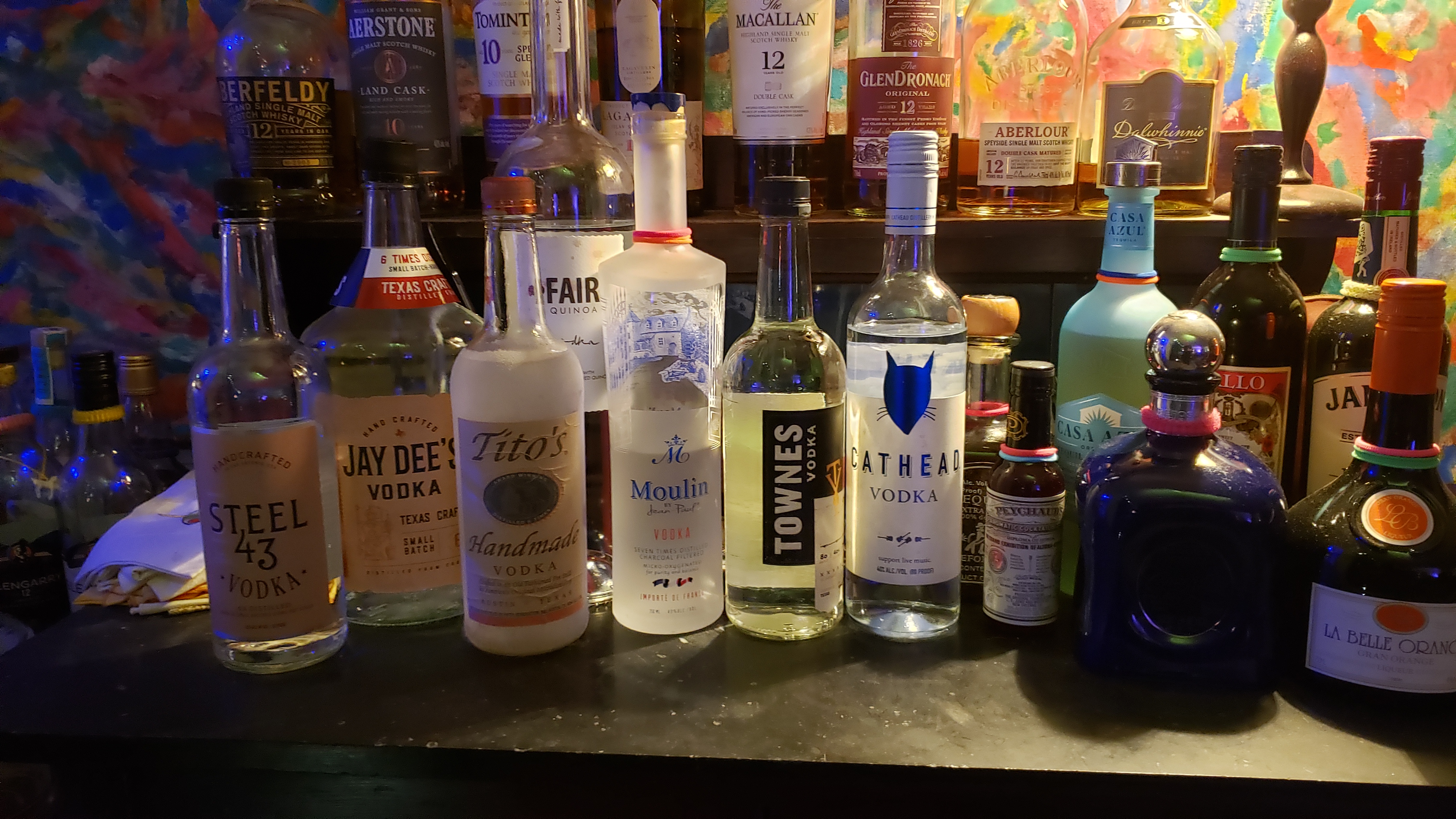Vodka

Vodka is a clear, distilled spirit that is typically made from fermented grains or potatoes, although it can be produced from other ingredients like fruits or sugar. Here are the key elements that define vodka:
1. Ingredients: Vodka is traditionally made from grains (such as wheat, rye, or corn) or potatoes, but almost any fermentable sugar or starch can be used.
2. Distillation and Purity: It is distilled to a high alcohol content, often 95-96% ABV, and then diluted to around 40% ABV for bottling. The distillation process is designed to remove impurities and create a neutral taste.
3. Flavor: Vodka is known for its clean, neutral flavor, though some vodkas have subtle flavor profiles depending on the base ingredients and the water used.
4. Uses: Vodka is versatile and commonly used in cocktails due to its neutral character, but it can also be enjoyed neat, especially in Eastern European countries where it originated.
Though traditionally flavorless, vodka can be infused with various flavors, making it adaptable to a wide range of drinks.
Listen for an overview of vodka. It’s pretty interesting and informative. Enjoy!
Vodka prices in Russia set to soar to combat Ukraine war inflation
10 Vodka Cocktails Around The World You Need To Try, According To The Pros
How Is Vodka Different From Other Clear Spirits?
This Polish Vodka Company Puts Family and Sustainability Above All
Which Vodka Is Best? A Taste Test of Svedka, Stoli, Grey Goose, and More
The 25 Most Interesting Vodkas to Enjoy Right Now
6 Bottom Shelf Vodkas You Should Always Buy And 5 To Avoid
Spirit of the Week: Weber Ranch agave vodka is all sorts of good weird